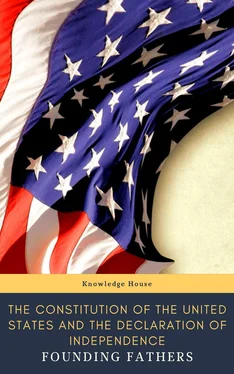The public debt of the Union would be a further cause of collision between the separate States or confederacies. The apportionment, in the first instance, and the progressive extinguishment, afterwards, would be alike productive of ill-humor and animosity. How would it be possible to agree upon a rule of apportionment, satisfactory to all? There is scarcely any that can be proposed, which is entirely free from real objections. These, as usual, would be exaggerated by the adverse interest of the parties. There are even dissimilar views among the States, as to the general principle of discharging the public debt. Some of them, either less impressed with the importance of national credit, or because their citizens have little, if any, immediate interest in the question, feel an indifference, if not a repugnance to the payment of the domestic debt, at any rate. These would be inclined to magnify the difficulties of a distribution. Others of them, a numerous body of whose citizens are creditors to the public, beyond proportion of the State in the total amount of the national debt, would be strenuous for some equitable and effective provision. The procrastinations of the former would excite the resentments of the latter. The settlement of a rule would in the mean time be postponed, by real differences of opinion and affected delays. The citizens of the States interested would clamor; foreign powers would urge for the satisfaction of their just demands, and the peace of the States would be hazarded to the double contingency of external invasion and internal contention.
Suppose the difficulties of agreeing upon a rule surmounted, and the apportionment made. Still there is great room to suppose, that the rule agreed upon would, upon experiment, be found to bear harder upon some States than upon others. Those which were sufferers by it, would naturally seek for a mitigation of the burden. The others would as naturally be disinclined to a revision, which was likely to end in an increase of their own incumbrances. Their refusal would be too plausible a pretext to the complaining States to withhold their contributions, not to be embraced with avidity; and the non-compliance of these States with their engagements would be a ground of bitter discussion and altercation. If even the rule adopted should in practice justify the equality of its principle, still delinquencies in payments, on the part of some of the States, would result from a diversity of other causes–the real deficiency of resources; the mismanagement of their finances; accidental disorders in the administration of the Government; and, in addition to the rest, the reluctance with which men commonly part with money for purposes that have outlived the exigencies which produced them, and interfere with the supply of immediate wants. Delinquencies, from whatever causes, would be productive of complaints, recriminations, and quarrels. There is perhaps nothing more likely to disturb the tranquillity of nations, than their being bound to mutual contributions for any common object that does not yield an equal and coincident benefit. For it is an observation as true, as it is trite, that there is nothing men differ so readily about as the payment of money.
Laws in violation of private contracts, as they amount to aggressions on the rights of those States whose citizens are injured by them, may be considered as another probable source of hostility. We are not authorized to expect, that a more liberal, or more equitable spirit would preside over the legislations of the individual States hereafter, if unrestrained by any additional checks, than we have heretofore seen, in too many instances, disgracing their several codes. We have observed the disposition to retaliation excited in Connecticut, in consequence of the enormities perpetrated by the legislature of Rhode Island; and we reasonably infer that, in similar cases, under other circumstances, a war, not of parchment , but of the sword, would chastise such atrocious breaches of moral obligation and social justice.
The probability of incompatible alliances between the different States, or confederacies, and different foreign nations, and the effects of this situation upon the peace of the whole, have been sufficiently unfolded in some preceding papers. From the view they have exhibited of this part of the subject, this conclusion is to be drawn, that America, if not connected at all, or only by the feeble tie of a simple league, offensive and defensive, would, by the operation of such jarring alliances, be gradually entangled in all the pernicious labyrinths of European politics and wars; and by the destructive contentions of the parts into which she was divided, would be likely to become a prey to the artifices and machinations of powers equally the enemies of them all. Divide et impera 13 must be the motto of every nation that either hates or fears us.14
PUBLIUS.
FEDERALIST VII:
The Consequences of Hostilities Between the States
Table of Contents
To the People of the State of New York:
Assuming it therefore as an established truth, that the several States, in case of disunion, or such combinations of them as might happen to be formed out of the wreck of the general Confederacy, would be subject to those vicissitudes of peace and war, of friendship and enmity, with each other, which have fallen to the lot of all neighboring nations not united under one Government, let us enter into a concise detail of some of the consequences that would attend such a situation.
War between the States, in the first period of their separate existence, would be accompanied with much greater distresses than it commonly is in those countries where regular military establishments have long obtained. The disciplined armies always kept on foot on the continent of Europe, though they bear a malignant aspect to liberty and economy, have, notwithstanding, been productive of the signal advantage of rendering sudden conquests impracticable, and of preventing that rapid desolation, which used to mark the progress of war, prior to their introduction. The art of fortification has contributed to the same ends. The nations of Europe are encircled with chains of fortified places, which mutually obstruct invasion. Campaigns are wasted in reducing two or three frontier garrisons, to gain admittance into an enemy's country. Similar impediments occur at every step, to exhaust the strength and delay the progress of an invader. Formerly, an invading army would penetrate into the heart of a neighboring country, almost as soon as intelligence of its approach could be received; but now, a comparatively small force of disciplined troops, acting on the defensive, with the aid of posts, is able to impede, and finally to frustrate, the enterprises of one much more considerable. The history of war, in that quarter of the globe, is no longer a history of nations subdued, and empires overturned; but of towns taken and retaken, of battles that decide nothing, of retreats more beneficial than victories, of much effort and little acquisition.
In this country, the scene would be altogether reversed. The jealousy of military establishments would postpone them as long as possible. The want of fortifications, leaving the frontiers of one State open to another, would facilitate inroads. The populous States would, with little difficulty, overrun their less populous neighbors. Conquests would be as easy to be made, as difficult to be retained. War, therefore, would be desultory and predatory. Plunder and devastation ever march in the train of irregulars. The calamities of individuals would make the principal figure in the events which would characterize our military exploits.
This picture is not too highly wrought; though I confess, it would not long remain a just one. Safety from external danger is the most powerful director of national conduct. Even the ardent love of liberty will, after a time, give way to its dictates. The violent destruction of life and property incident to war, the continual effort and alarm attendant on a state of continual danger, will compel nations the most attached to liberty, to resort, for repose and security, to institutions which have a tendency to destroy their civil and political rights. To be more safe, they at length become willing to run the risk of being less free.
Читать дальше












